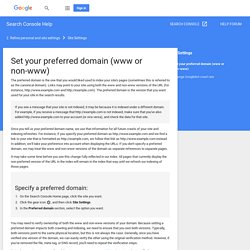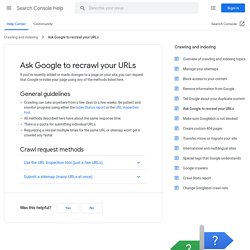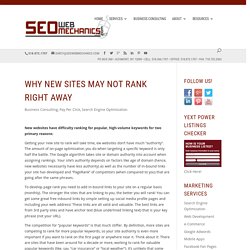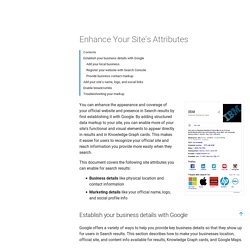

Kalicube.pro - At The Heart of Answer Engine Optimisation. The Key to the Future of SEO - Understanding and Credibility. The rise of Answer Engine Optimization: Why voice search matters. Search engine optimization, better known as SEO, has been around since the 1990s.

More than two decades later, we still talk about optimizing for the likes of Google and Bing as ‘SEO’. The tactics may have evolved, the landscape may have changed, but the overarching principles remain the same – right? According to Chee Lo, Head of SEO at Trustpilot, and Jason Barnard, SEO consultant at Kalicube.pro, search engine optimization is no longer the only game in town. In a recent webinar, the two experts explained how the rise of voice search is transforming search engines into “answer engines”, which require a different strategy and set of ingredients for success. This strategy has come to be known as AEO, or “answer engine optimization”. The Ultimate Semantic SEO Guide for 2017 & Beyond. Set your preferred domain (www or non-www) - Search Console Help. The preferred domain is the one that you would liked used to index your site's pages (sometimes this is referred to as the canonical domain).

Links may point to your site using both the www and non-www versions of the URL (for instance, and The preferred domain is the version that you want used for your site in the search results. If you see a message that your site is not indexed, it may be because it is indexed under a different domain. XML Sitemaps: The Most Misunderstood Tool in the SEO's Toolbox. SEO Ranking Factors in 2017: What’s Important and What’s Not. Searchmetrics Google ranking factors study says content gaining while links losing in importance. What Is SERP Stacking For SEO? SERP stacking is an advanced Internet marketing tactic that enables your company to significantly increase its organic ranking visibility by claiming more real estate in the SERPs.

What is SERP? First off, before we explain what SERP stacking is and why it is helpful for SEO, we should first explain to you what ‘SERP’ means. SERP is an acronym that stands for Search Engine Results Page. A SERP is a list of web pages for a given keyword search query. So SEO professionals or SEO-savvy web designers refer to SERPs, they are talking about search engine rankings (most typically Google rankings) and how and where certain websites and web pages fall within search engine results. Ranking Multiple Domains to Own More SERP Real Estate. Got SEO Basics? 5 Tips To Boost Your Organic CTR.
Dominate Your Brand Search Engine Result Page. Taking white label reports to the next level with MyRanks. In today’s article we’ll talk about taking your SEO reports from the regular PDFs to the mobile realm, the great benefits this can have on your sales pitch, and how it can improve your customer support, impress your clients and strengthen their trust in you.
As usual, I will be referencing in my examples PRT’s features, specifically our PRT mobile app and MyRanks mobile app. SEO ranking reports are an essential part of keeping clients happy and up to date. SEO & Sitelinks: How to Get Google Subheadings in Search Results. By Kara Anton, Managing Consultant The goal of this tutorial is to make your website's search engine result look like this: Note: #1 points to your main URL (ex: www.relishtraymedia.com) and #2 points to the important internal links from your site (ex: www.relishtraymedia.com/blog), otherwise known as the sitelinks Sitelinks & Why You Want ‘Em!

The tiny subheadings (aka internal links) that are shown below a website’s main URL in Google's organic search results are called Sitelinks. Ask Google to re-crawl your URLs - Search Console Help. A sitemap is an important way for Google to discover URLs on your site.

A sitemap can also include additional metadata about alternate language versions and video-, image-, or news-specific pages. Learn how to create a sitemap. If you have not changed your sitemap since the last time Google crawled it, resubmitting the sitemap won't have any additional benefit. If you have updated pages in the sitemap, mark them with <lastmod>.
Here are the different ways that you can alert Google about your sitemap: Search Console. Getting New Websites to Rank. New websites have difficulty ranking for popular, high-volume keywords for two primary reasons: Getting your new site to rank will take time, ew websites don’t have much “authority”.

The amount of on-page optimization you do when targeting a specific keyword is only half the battle. The Google algorithm takes site or domain authority into account when assigning rankings. Your site’s authority depends on factors like age of domain (hence, new websites necessarily have less authority) as well as the number of in-bound links your site has developed and “PageRank” of competitors (when compared to you) that are going after the same phrases.
To develop page rank you need to add in-bound links to your site on a regular basis (monthly). Study: Google Now Displays Rich Answers For 19.45% Of Queries. Specify your social profiles to Google You can enhance the appearance and coverage of your official website and presence in Search results by first establishing it with Google.

By adding structured data markup to your site, you can enable more of your site’s functional and visual elements to appear directly in results and in Knowledge Graph cards. This makes it easier for users to recognize your official site and reach information you provide more easily when they search. Customizing Your Knowledge Graph